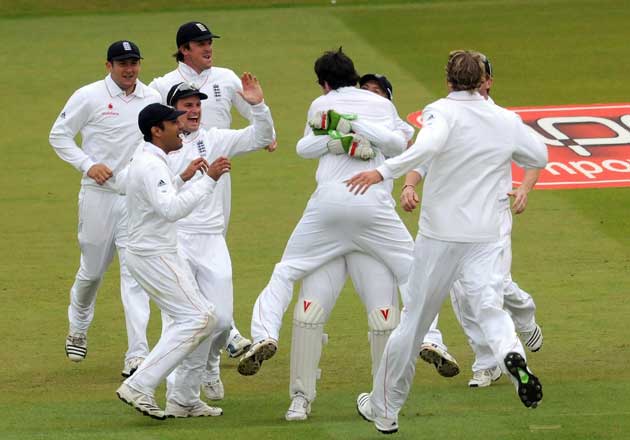ECB are putting game's biggest asset at risk for financial gain
Crowded schedule could undo early advances made by Strauss's men and leave public feeling jaded too

Your support helps us to tell the story
From reproductive rights to climate change to Big Tech, The Independent is on the ground when the story is developing. Whether it's investigating the financials of Elon Musk's pro-Trump PAC or producing our latest documentary, 'The A Word', which shines a light on the American women fighting for reproductive rights, we know how important it is to parse out the facts from the messaging.
At such a critical moment in US history, we need reporters on the ground. Your donation allows us to keep sending journalists to speak to both sides of the story.
The Independent is trusted by Americans across the entire political spectrum. And unlike many other quality news outlets, we choose not to lock Americans out of our reporting and analysis with paywalls. We believe quality journalism should be available to everyone, paid for by those who can afford it.
Your support makes all the difference.England's season of 2009 could have been designed to prove that it is possible to have too much of a good thing. By the autumn, which will be six days old when it ends, the players will be tired if not injured and most observers may well have ceased to care.
The biggest risk is that the most important asset in the game, the national team, will have been cheapened. In seeking to promote the game, the England and Wales Cricket Board, who are running the show, may have seriously weakened what they should be protecting at all costs.
By seeing off West Indies in three days at Lord's the Test team were doing themselves and everybody else a favour – everybody, that is, except the 18,000 who had bought tickets for yesterday's play. The path that England must pursue this summer is a tangled one.
It goes something like this. Two Tests will be followed by three one-day internationals after which come two one-off Twenty20 internationals as preparation for the World Twenty20 in which they will play at least two matches, and seven if they reach the final.
Five more Tests for the Ashes will then be squeezed in over 48 days before, in order, a one-day international, two Twenty20 matches and seven one-day internationals. The international season lasts from 6 May to 21 September. England could theoretically have played 57 days of cricket, 50 taking away the World Twenty20. Immediately after that they fly to South Africa to take part in the Champions Trophy.
For most of these matches tickets are going well and there is no point in seeking an Ashes seat through legitimate channels. The one-dayers are doing good business in some places, much less well in others, with about an 85 per cent take-up.
Superficially, it all looks reasonable. But the truth of the matter will be there in Chester-le-Street this week. Only 20,000 tickets have been sold for the five days. For the first day on Thursday the ground will be three-quarters empty and faced with that it's hard to have your metaphorical glass half full.
That match puts the overcrowded season into perspective. Nobody wants to watch because everybody knows it should not be played. "It has been a hard sell," said David Harker, the exemplary chief executive of Durham. "There are several reasons, starting with the fact we couldn't get tickets on sale till very late because we didn't know there would be a match or who it would involve. It's early in the season, the opposition are not the most attractive and football's still going on."
He could have been offering reasons why the ECB might have dropped the opening series of the season. They will defend it as necessary on two grounds. The first is financial, demonstrating that cricket has ceased to be a game, because they claim it would cost them between £10 million and £15m in revenue, and the second is because their television contract is based on seven Test matches and 10 one-day internationals a summer.
Sooner or later, somebody must recognise that all this is too much. True, this summer is different because of the 15 days of the World Twenty20. Indeed, the whole summer had to be planned backwards to make sure everything could be crammed in (sardines would complain if they were treated like this) which is why a Lord's Test started on a Wednesday.
But the season is a mess and international cricket by its end will have ceased to be special. England's players will still talk about the pride they feel in playing but they will not feel it.
The ECB have made one more grave error which may yet have serious repercussions. In staging the First Ashes Test in Sophia Gardens, Cardiff, a place which has never been the venue for a Test, they have made themselves hostages to fortune. The award was based purely on money offered by Glamorgan and is not only unfair and unjust to grounds like the Riverside, which have served their Test apprenticeship, but Trent Bridge, which is an old master at the Test business.
Harker said: "Of course we were disappointed not to be awarded an Ashes Test. You like to think you are competing on a level playing field but this field wasn't level at all." Instead, almost fittingly, it is Durham where the curtain will be brought down – the ninth limited-overs match against Australia – and only 134 days to go.
Join our commenting forum
Join thought-provoking conversations, follow other Independent readers and see their replies
Comments